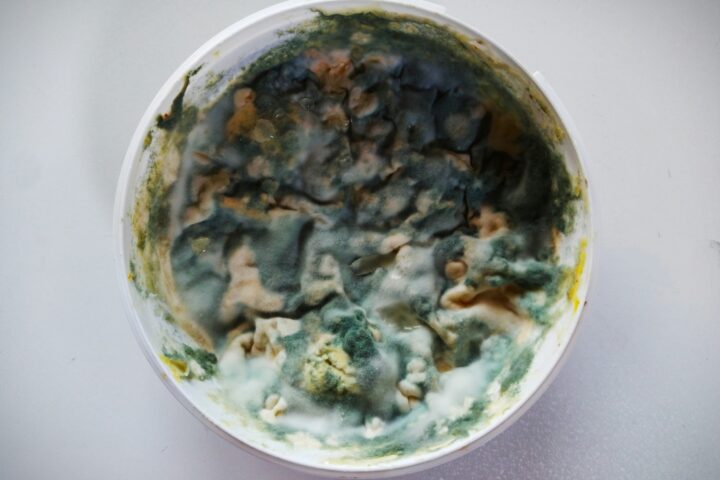
“Natural does not always mean sustainable”
We are reliant on optimized foodstuffs in order to supply the planet’s growing population with healthy, sustainably produced food. However, consumers often view these as “artificial”, and thus “unnatural” – and “natural” is the preferred choice. Of our everyday foods, however, very few are of “natural origin”. They have been optimized by humans over the course of time. But are supposedly “natural” products also healthier and more sustainable? Three presenters took an in-depth look at food optimization in this Swiss-Food Talk.
Friday, November 25, 2022
Naturalness is a key factor for consumers. Perceived naturalness plays a major role in choosing a particular product. Dr. Fabienne Michel, researcher in Consumer Behavior at ETH Zurich, explains why: “Consumers view natural foods as being healthier and more environmentally friendly. In addition, many think that natural foods taste better than artificial ones.” But what do consumers think a natural product is?
Perceived naturalness is affected by factors such as cultivation, production, and the properties of the final product. The “Food Natural Index”, developed in conjunction with Michel and other scientists, provides further answers regarding consumer behavior. The perceived naturalness of a product increases, the lower the levels of additives, unexpected ingredients (such as thickening agents) or processed ingredients it contains. A food is also considered to be more natural if it is labeled as being made using organic production methods. As the term “perceived naturalness” suggests, however, there is no conclusive definition of “natural”.
Natural foods are expensive
Unprocessed foods such as fresh fruit and vegetables are rated as very natural in Fabienne Michel’s “Food Natural Index”. But there is a problem: “Foods such as fruit and vegetables that contain a lot of micronutrients are often relatively expensive in terms of their energy content”, explains Dr. Szabi Péter, Medical Director at DSM. For the cost of one franc, you can buy seven times more calories in the form of potato chips than you could in the form of fruit, for example. This means that people in many parts of the world are malnourished or undernourished. Often, although they have access to sufficient calories, their diet does not contain enough essential nutrients.
This problem occurs all over the world and is known as “hidden hunger”. A lack of essential vitamins and minerals has negative short-term and long-term effects on human health. Péter explains this as follows: “Many people eat too much of the wrong thing”. The challenge therefore lies in offering people nutritious and sustainably produced food at affordable prices. DSM is seeking to close the micronutrient gap experienced by 800 million people by 2030 using fortified staple foods and supplements. This proven, cost-effective method for combating malnutrition enables people to eat a healthier diet. DSM is undertaking this in collaboration with its cross-sectoral partners including the World Food Programme, UNICEF, World Vision, and Scaling Up Nutrition.
Natural does not always mean sustainable
Plant scientist Dr. Etienne Bucher from Agroscope draws a connection with how foods are cultivated. The challenges are clear: “We have increasingly little space to produce food. Plus, we also have to face climate change and population growth.” Increasing food production under these conditions is a difficult task. As well as offering healthy products for people to eat, cultivation methods must also be healthy for the planet. This means that they must use as little space as possible. In Bucher’s view, therefore, organic farming is not the ideal solution: “Organic farming offers significantly smaller yields per area than conventional farming.” Historically speaking, Bucher explains, nearly 70 percent of productivity increases in farming are due to crop breeding. However, developments in this area have stagnated for more than twenty years.
This is partly because the moratorium on genetic engineering has blocked any innovation. New breeding techniques (NBTs) are prohibited in Switzerland and across the whole of Europe. “We urgently need them in order to achieve increased yields in small spaces”, Bucher notes. The political world and society’s skepticism of NBTs is due to their perception as being “not natural enough”. However, the researcher explains that this perception has been distorted by the emotional debate regarding genetic engineering that took place twenty years ago. The new techniques are very different to the experiments performed at the time. And: “Natural definitely does not always mean sustainable”. NBTs enable the efficient breeding of plants that have no foreign genes, are resistant to pests, and require fewer crop protection agents. Targeted breeding can also make fruit and vegetables healthier by giving them higher levels of certain nutrients. In addition, drought-tolerant plants serve to prepare the agricultural world for climate change. These technological opportunities need to be used if we want greater amounts of healthy food and higher levels of sustainability.
Related articles

Genetic Engineering in Everyday Swiss Life – “There’s a Gene in Everything!”
The genetic engineering moratorium in place since 2005 gives the impression that Switzerland is largely free of genetic engineering. However, a closer look shows that genetic engineering has long since become part of our everyday lives – we just usually don’t notice it.

Global facts on world food and agriculture
Only thanks to technological progress and modern crop protection will we be able in the future to conserve our resources while feeding a growing population in a healthy and affordable way.

Pesticides in Green Smoothies
After countless recipes for Christmas cookies, festive roasts and cocktails, the advice on losing weight, detoxing and beautifying oneself now takes centre stage. Most of it is sheer nonsense.

Natural Toxins: An Underestimated Risk in Our Food
Safe food cannot be taken for granted. While chemical substances are often the focus of public criticism, reality shows that the greatest risks to food safety are of natural origin. Recent recalls of infant food products illustrate how insidious bacterial toxins or moulds can be.

